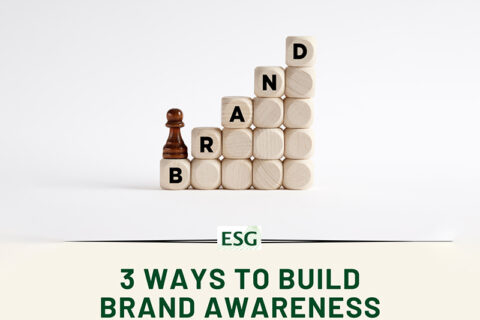Managing Successful Promotions Requires Thoughtful Measurement
Hosting contests and sweepstakes is a popular strategy for brand promotion and customer engagement. But the success of these campaigns hinge on more than just creativity and participation numbers. To truly understand the impact and effectiveness of your contests, you must get into the world of contest metrics. Consistency beats intense effort in every aspect of life including marketing so, whether your brand runs a lot of contests or is just starting out make sure you look at the calendar to come up with a solid set of promotions for the coming year. It is also important to be laser-focused on achievable goals while also prioritizing the ones that mean the most to your brand.
Defining Contest Goals
Before diving into metrics, it’s essential to establish clear contest objectives. At ESG, we emphasize the importance of aligning these goals with your overall marketing strategy. Are you aiming to boost brand awareness, generate leads, or foster customer loyalty? All three? Defining your goals not only guides your contest design but also determines the metrics that matter most. Clearly defining what success looks like will determine the platform or platforms you use to execute your contest, how people enter, what prize is available, and which target demographic you’re after. Be willing to have conversations about what you know about your customer base so that you can decide if you need to learn more – which will affect the contest structure – whereas if you have the 411 on your customers you likely will be able to address whether or not you are reaching them effectively – which again will affect the contest structure while also honing in on your goals and objectives.

Identifying Key Contest Metrics
ESG believes there are several key metrics that are critical for evaluating contest performance:
- Participation Rate: Measure the number of entries in comparison to your target audience. ESG can help you analyze participation rates and identify strategies to improve them. Of particular importance is the need to know if the participation rate includes unique entries or is an aggregate of all entries. A contest that aims to inform will likely benefit from having people come back every day to enter so your brand message makes an impact whereas a contest designed to coincide with a holiday may only permit one entry per person.
- Conversion Rate: Track how many participants take a desired action, such as opting into a newsletter, downloading an APP, watching a video, or following you on a social media platform making a purchase after entering the contest. An effective action that helps measure conversion rates is to share a contest-specific coupon with entrants after they participate. What makes it contest-specific and measurable you ask? Tie it to a unique code so you can distinguish it from other coupons and incentives from your brand. Contests are an effective tactic to have a conversation with consumers who are important to your brand. Not only do they start a conversation with new customers, but they also continue the conversation with current customers. ESG can provide insights into optimizing conversion rates as well as helping you determine the desired actions you want your users to take.
- Social Engagement: Assess the impact of your contest on social media by measuring shares and comments. Our expertise in social media engagement can help you harness the power of social platforms without relying on “vanity metrics” that artificially boost success rates. One example of a vanity metric could be total impressions or views. It can seem impressive if this number is high, but it’s just smoke and mirrors if your end goal is to increase participation at an event or see a lift in sales. Always look past the metrics that look good on the surface but lack depth in terms of actionable insights.
Tracking and Analyzing Metrics
Collecting and analyzing contest data can be daunting and difficult. We recommend using specialized tools and platforms that simplify the process, ranging from traditional web analytics programs to proprietary contest platforms. With our guidance, you’ll learn how to collect, organize, and interpret contest metrics effectively. The end goal is to make sure your data visualization is simple to understand and actually shows you information that will help you better understand who your customers are and how they responded to your contest. Some of the key metrics your bar graphs and pie charts contain will likely consist of what part of the country, or the globe if your contest is international, your audience helms from, their age, and even the time of day your contest website or application generated the most traffic. Tip: make sure you factor in the advertising you did for the contest because it’s a key component of understanding your contest metrics. Also, don’t be shy about promoting the promotion because its success depends upon this. Read about how to use an email marketing strategy to promote your contest here.
Calculating ROI
Measuring return on investment is at the heart of contest success. ESG’s experts will walk you through the ROI calculation process, helping you determine the real value your contest brings to the table. Whether it’s increased sales or a boost in brand loyalty, understanding your ROI is essential. The end of third-party cookies is going to happen in 2024 and obtaining first-party data will be tantamount to the continued success of any brand. Running a contest delivers first-party data. A contest connects you to real people who are interested in your product, movie, television show, or event. First-party data is valuable because it’s typically the most accurate and reliable source of information about your customers or contest participants. You can use this data for various purposes, such as sending promotional emails, understanding participant demographics, and improving your marketing strategies. That said, make sure the use of any data abides by your privacy policy. Better yet, provide entrants with the ability to opt into future communication from you on the entry form; reaching out to a person who doesn’t want to hear from you is a waste of time and should not be calculated in your ROI.
Adjusting Strategies Based on Metrics
ESG understands that contest metrics aren’t just for analysis but also for action. By closely examining your contest data, you can make informed decisions about adjusting your marketing strategies. We can guide you in making the necessary tweaks to improve future contests based on not only your insights, but on the insights of countless happy clients for whom we’ve managed contests and promotions. For example, we had a client trying to gain a foothold with a younger demographic, but they were collecting the traditional amount of data from participants such as first name, last name, mailing address, telephone number, date of birth, etc. Looking at the analytics we could see less than 7% of the contest participants were from their desired age group. We suggested they collect less information in their next contest and the participation from a younger demo increased by 29%.
Setting the Stage with ESG
Enteractive Solutions Group (ESG) has helped countless businesses run successful promotions. Our expertise in measuring contest ROI and success makes us the ideal partner for any company looking to optimize their contest strategies. Call us today so we can help you get the ROI you are looking for from your promotion.


